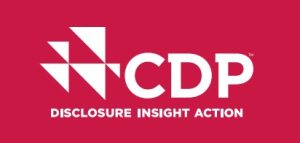ESG Rating Regulatory Policy
The UK plans to incorporate ESG ratings into regulatory policies aimed at regulating the business of ESG rating providers.
The ESG rating regulatory policy will be implemented as part of the Financial Services and Markets Act 2000, under the responsibility of the Financial Conduct Authority in the UK.
Related Post: UK Plans to Regulate ESG Ratings Providers
Introduction to ESG Rating Regulatory Policy
ESG ratings are typically used to evaluate a company’s ESG profile, characteristics, risk exposure, and impact. Investors use ESG products to guide investment decisions to align with their sustainable risks, opportunities, and preferences. Due to the rapid development of the ESG rating market and the lack of formal regulation, stakeholders are concerned about the transparency, governance, and internal control processes of ESG rating products. The International Organization of Securities Commissions (IOSCO) and the Organization for Economic Co-operation and Development (OECD) recommend that regulatory agencies place greater emphasis on ESG ratings and data.
The International Organization of Securities Commissions released a document in November 2021 regarding ESG ratings and data providers, recommending increased industry transparency, governance, and regulation. The ESG Data and Ratings Working Group of the International Capital Market Authority (ICMA) released a voluntary code of conduct in December 2023 to enhance market reliability and trust. In the second quarter of 2023, the UK released a public consultation document on ESG rating regulation, receiving nearly 100 responses from financial institutions, industry associations, consulting firms, and investors, with 95% supporting the introduction of regulation.
This regulatory policy aims to require ESG rating providers to obtain authorization from the UK Financial Conduct Authority and comply with relevant rules. Regulatory policies can effectively manage conflicts of interest, enhance market integrity, strengthen investor information, and reduce greenwashing. ESG rating suppliers who meet both the conditions of generating ESG ratings and providing ESG ratings will be included in the regulatory scope. Regardless of whether the rating provided by the supplier is paid or free, it will be included in the regulatory scope. For suppliers located outside the UK, providing paid ESG ratings to UK customers is also regulated. Overseas suppliers offering free ESG ratings are not regulated.
The UK Financial Conduct Authority has provided a one-year transition period for ESG rating providers, and as ESG ratings are provided by numerous different institutions, regulatory policies have established some exemption conditions:
- ESG rating suppliers have previously been regulated by the UK Financial Conduct Authority.
- ESG ratings are made by academic institutions, etc., and their purpose is not to obtain economic rewards.
- ESG ratings are made by companies, and the purpose of companies is to comply with regulatory policies.
- ESG ratings are made by companies, while ratings are used within the scope of the company itself.
Reference:
The Financial Services and Markets Act 2000 (Regulated Activities) (ESG Ratings) Order 2025





